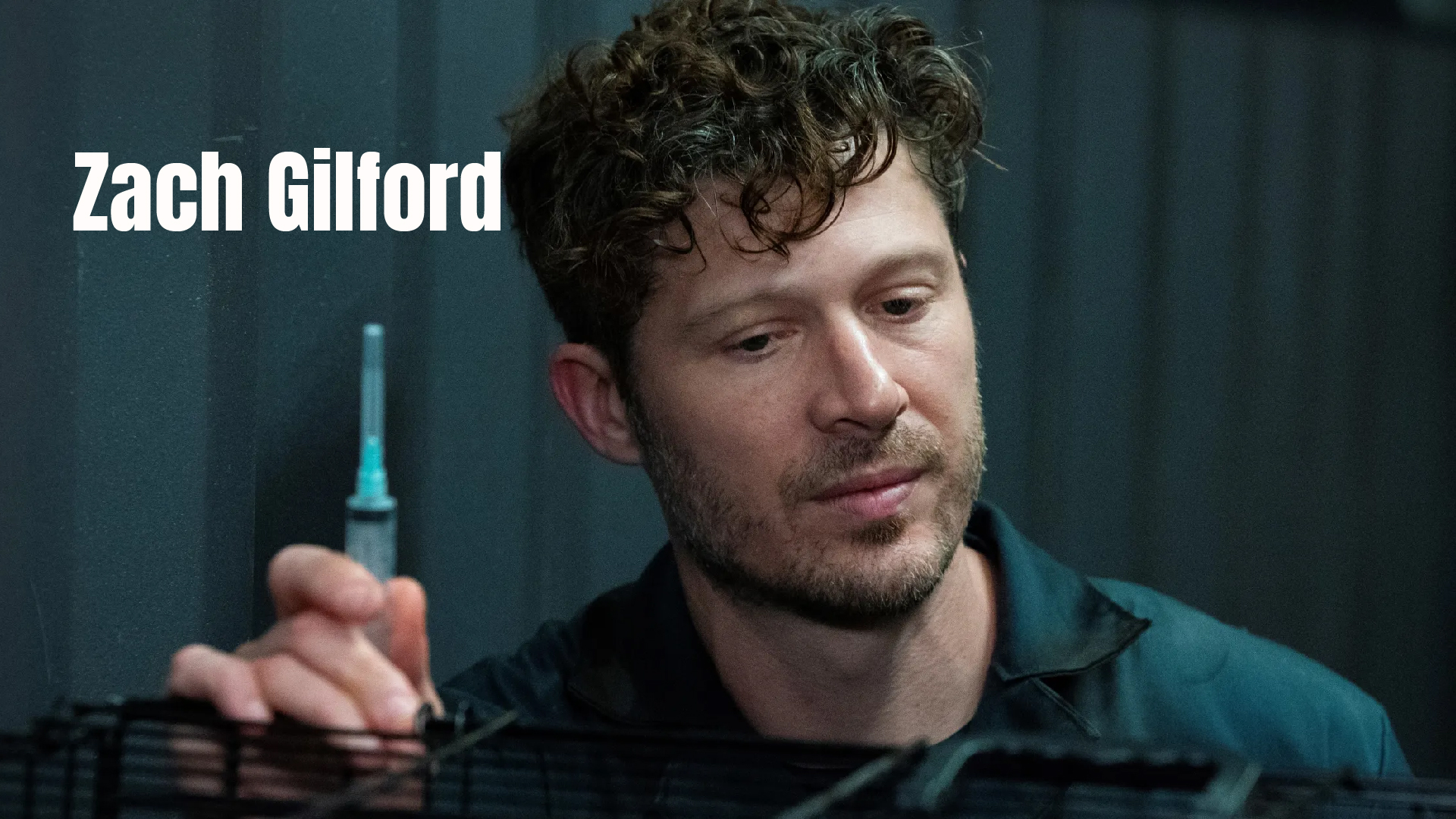Zach Gilford’s Directorial Debut
Zach Gilford, an actor best known for his performances in shows like Friday Night Lights and Midnight Mass, made his directorial debut on Criminal Minds: Evolution, a continuation of the long-running Criminal Minds series. While many recognize Gilford for his on-screen talent, stepping behind the camera was a significant and ambitious move. For fans of the show and Gilford alike, his first stint as a director provided a fresh perspective to the popular crime drama, offering a blend of suspense and emotional depth.
This directorial debut didn’t happen by chance. Gilford had always harbored a desire to direct, a wish that finally materialized when he was offered the opportunity during negotiations to return for Criminal Minds: Evolution. According to Gilford, he had frequently shadowed directors on various shows throughout his acting career, eagerly absorbing knowledge and waiting for the right moment to take the reins. “I’ve shadowed on almost every show I’ve worked on,” he remarked.
Why Criminal Minds Was the Perfect Fit for His Debut
Given the collaborative nature of the Criminal Minds set, Gilford found himself in a supportive environment that was well-suited to his first foray into directing. The production team has a history of allowing cast members to try their hand at directing, making it a perfect opportunity for Gilford to apply his behind-the-camera vision to a show that was already close to his heart.
Challenges of Transitioning from Acting to Directing
Making the leap from acting to directing is no small feat, and Zach Gilford faced a variety of challenges along the way. Despite being familiar with the Criminal Minds set as an actor, directing introduced a new level of responsibility that required careful preparation and an entirely different mindset. “I just worked my ass off,” Gilford candidly shared in an interview, emphasizing his dedication to understanding the craft before stepping behind the camera.
One of the most significant hurdles was the learning curve that came with directing a team of seasoned professionals. Gilford knew he had to ensure the quality of his work met the high standards expected on a show like Criminal Minds. His preparation involved walking through sets on weekends, meticulously planning each scene, and preparing himself to adapt when things inevitably didn’t go according to plan. As Gilford pointed out, despite the best-laid plans, actors may interpret scenes differently, or technical limitations might prevent the execution of certain ideas. These challenges required him to be flexible and think on his feet, a skill that served him well throughout the process.
How His Acting Experience Shaped His Directing
Gilford’s extensive acting background helped ease the transition. Having been in front of the camera for many years, he understood the actors’ needs and concerns intimately, which allowed him to foster a comfortable and collaborative environment on set. He stated that his acting experience gave him a unique perspective, enabling him to guide his castmates in ways that respected their creative processes. This understanding of what it’s like to be directed proved to be an asset when he took on the directorial role.
Improvisation on Set: Keeping Co-Stars on Their Toes
One of the most intriguing aspects of Zach Gilford’s directing style is his use of improvisation to challenge his co-stars and elevate the dynamics of each scene. As both an actor and director, Gilford recognizes the value of spontaneity and how it can bring fresh energy to a performance. This ability to inject unscripted moments into the show not only kept the actors on their toes but also enhanced the authenticity of their reactions, making the scenes feel more genuine and immersive.
Gilford revealed that he enjoyed throwing his co-stars off-guard by improvising lines that were not in the script. For instance, he once referred to A.J. Cook’s character, JJ, as “FBI Barbie” during a scene—a moment he recalls with amusement. While not every improvised line made it into the final cut, it served to lighten the mood on set and help build rapport among the cast. “I love messing with A.J. Cook; she’s one of my favorite people to challenge.” This approach allowed for more natural interactions, breaking the routine of scripted television and encouraging his fellow actors to react in real-time.
The Role of Improvisation in Crime Dramas
Improvisation, while more common in genres like comedy or drama, is less frequently seen in procedural crime shows like Criminal Minds. However, Gilford’s decision to incorporate unscripted moments into the rigid format of a crime drama underscores his desire to push the boundaries and bring something new to the series. By allowing room for his co-stars to improvise, Gilford helped create more nuanced performances, as actors were forced to engage more deeply with their characters and react spontaneously to unexpected lines or actions.
Collaboration with Cast and Crew
For Zach Gilford, collaboration was at the heart of his successful directorial debut. As a first-time director on Criminal Minds: Evolution, he leaned heavily on the expertise of the cast and crew, many of whom had years of experience working together on the show. Gilford expressed immense gratitude for the support he received, especially from those who had directed episodes before, like Joe Mantegna and A.J. Cook. “Every one of my cast members who directed before were so open and helpful and held my hand through it,” Gilford explained.
Support from Experienced Cast Members
One of the key aspects of Gilford’s directorial success was the mentorship he received from fellow cast members who had already stepped into the director’s chair. On Criminal Minds: Evolution, many of the main actors have had the opportunity to direct episodes, creating a culture of collaboration and mutual support. Gilford acknowledged this sense of camaraderie as one of the reasons his debut went so smoothly. For instance, he shadowed the director of the opening episode to better understand the technical nuances of directing and received valuable advice from actors like Joe Mantegna.
A Case Study: Directing Complex Scenes
One standout example of the collaboration on set involved a particularly intense scene that required precise timing and coordination between the actors and the technical crew. While Gilford had carefully planned the scene during rehearsals, the final execution needed adjustments due to unforeseen lighting issues. Instead of being discouraged, he relied on the experience of the crew to troubleshoot and adapt the scene on the fly, allowing the episode to maintain its high level of tension and drama. This willingness to embrace teamwork and adapt on the spot was a key factor in the episode’s success.
Impact on Zach Gilford’s Career and Future Ambitions
Directing an episode of Criminal Minds: Evolution was not just a one-time experiment for Zach Gilford; it was a transformative experience that left a lasting impact on his career outlook. Having spent much of his time in front of the camera, this directorial debut opened new doors and allowed him to explore different facets of storytelling. In interviews, Gilford described the experience as exciting and something that has deepened his appreciation for the entire filmmaking process. “I’m going to be such a better actor because of it,” he reflected, acknowledging how the skills he learned as a director could enhance his performances
The Shift in His Career Perspective
While acting has been Gilford’s primary focus for years, his newfound passion for directing may lead to a future where he balances both roles. He explained that directing gave him a new perspective on the mechanics of television production, from scene composition to working with a team of professionals behind the scenes. The challenges he faced as a director helped him develop a more profound respect for the craft, and it’s clear that this experience has sparked a desire to pursue more opportunities behind the camera.
What’s Next for Zach Gilford?
As for what comes next, Gilford has hinted that he’s eager to take on more directing projects. His directorial debut has lit a creative fuse, and he is looking forward to future opportunities to expand his directorial portfolio. However, that doesn’t mean he’s stepping away from acting anytime soon.
Lessons from the Set: Advice for Aspiring Directors
Zach Gilford’s experience directing an episode of Criminal Minds: Evolution offers invaluable lessons for aspiring directors, particularly those making the transition from acting to directing. His journey highlights the importance of preparation, adaptability, and collaboration in the demanding world of television production. While Gilford had the advantage of already being a part of the show’s cast, his success was rooted in hard work and a commitment to learning the craft.
Key Takeaways from Gilford’s Directorial Experience
One of the most critical lessons from Gilford’s experience is the necessity of preparation. He spent countless hours rehearsing, shadowing experienced directors, and familiarizing himself with the technical aspects of directing. “I prepped so much,” Gilford said, explaining how this groundwork allowed him to handle unexpected changes on set
Lessons from the Set: Advice for Aspiring Directors
Zach Gilford’s experience directing an episode of Criminal Minds: Evolution offers invaluable lessons for aspiring directors, particularly those making the transition from acting to directing. His journey highlights the importance of preparation, adaptability, and collaboration in the demanding world of television production. While Gilford had the advantage of already being a part of the show’s cast, his success was rooted in hard work and a commitment to learning the craft.
Key Takeaways from Gilford’s Directorial Experience
One of the most critical lessons from Gilford’s experience is the necessity of preparation. He spent countless hours rehearsing, shadowing experienced directors, and familiarizing himself with the technical aspects of directing. “I prepped so much,” Gilford said, explaining how this groundwork allowed him to handle unexpected changes on set.
Another important takeaway is the value of flexibility. Even with extensive preparation, Gilford found that not everything goes according to plan once the cameras start rolling. Whether it’s dealing with technical challenges or last-minute script changes, a director must be able to think on their feet and adjust quickly. As Gilford learned, sometimes the best moments come from improvisation or spontaneous decisions made on set.
Lastly, teamwork played a crucial role in Gilford’s directorial debut. He relied on the expertise of the Criminal Minds crew and his fellow cast members, many of whom had previous directing experience. His willingness to seek advice and collaborate with others was instrumental in making his episode a success. Aspiring directors should take note of how vital it is to foster a collaborative atmosphere.
Advice for Actors Transitioning to Directing
For actors considering a similar transition, Gilford’s advice is simple: start by shadowing experienced directors. Watching how scenes are blocked, how decisions are made in the moment, and how directors manage the crew will provide invaluable insights. Additionally, Gilford emphasized the importance of being open to feedback. Directing is a learning process Read More Dallas Yocum.






